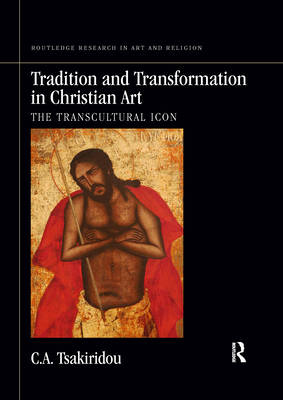
- Retrait gratuit dans votre magasin Club
- 7.000.000 titres dans notre catalogue
- Payer en toute sécurité
- Toujours un magasin près de chez vous
- Retrait gratuit dans votre magasin Club
- 7.000.0000 titres dans notre catalogue
- Payer en toute sécurité
- Toujours un magasin près de chez vous
Description
Tradition and Transformation in Christian Art approaches tradition and transculturality in religious art from an Orthodox perspective that defines tradition as a dynamic field of exchanges and synergies between iconographic types and their variants. Relying on a new ontology of iconographic types, it explores one of the most significant ascetical and eschatological Christian images, the King of Glory (Man of Sorrows). This icon of the dead-living Christ originated in Byzantium, migrated west, and was promoted in the New World by Franciscan and Dominican missions. Themes include tensions between Byzantine and Latin spiritualities of penance and salvation, the participation of the body and gender in deification, and the theological plasticity of the Christian imaginary. Primitivist tendencies in Christian eschatology and modernism place avant-garde interest in New Mexican santos and Greek icons in tradition.
Spécifications
Parties prenantes
- Auteur(s) :
- Editeur:
Contenu
- Nombre de pages :
- 252
- Langue:
- Anglais
- Collection :
Caractéristiques
- EAN:
- 9781032178615
- Date de parution :
- 30-09-21
- Format:
- Livre broché
- Format numérique:
- Trade paperback (VS)
- Dimensions :
- 175 mm x 246 mm
- Poids :
- 679 g

Les avis
Nous publions uniquement les avis qui respectent les conditions requises. Consultez nos conditions pour les avis.






